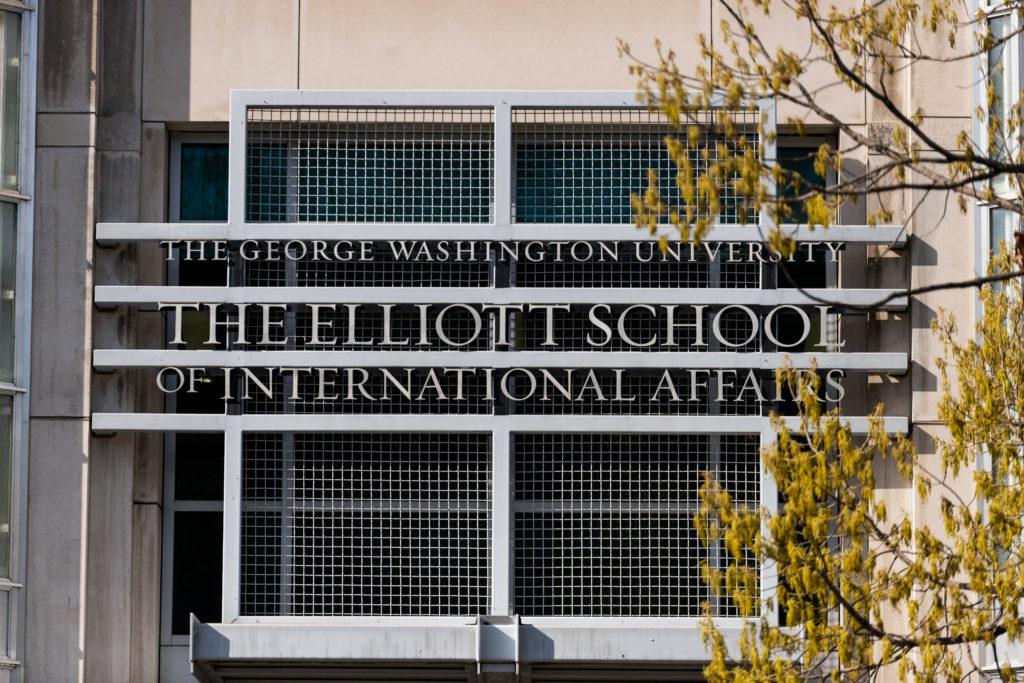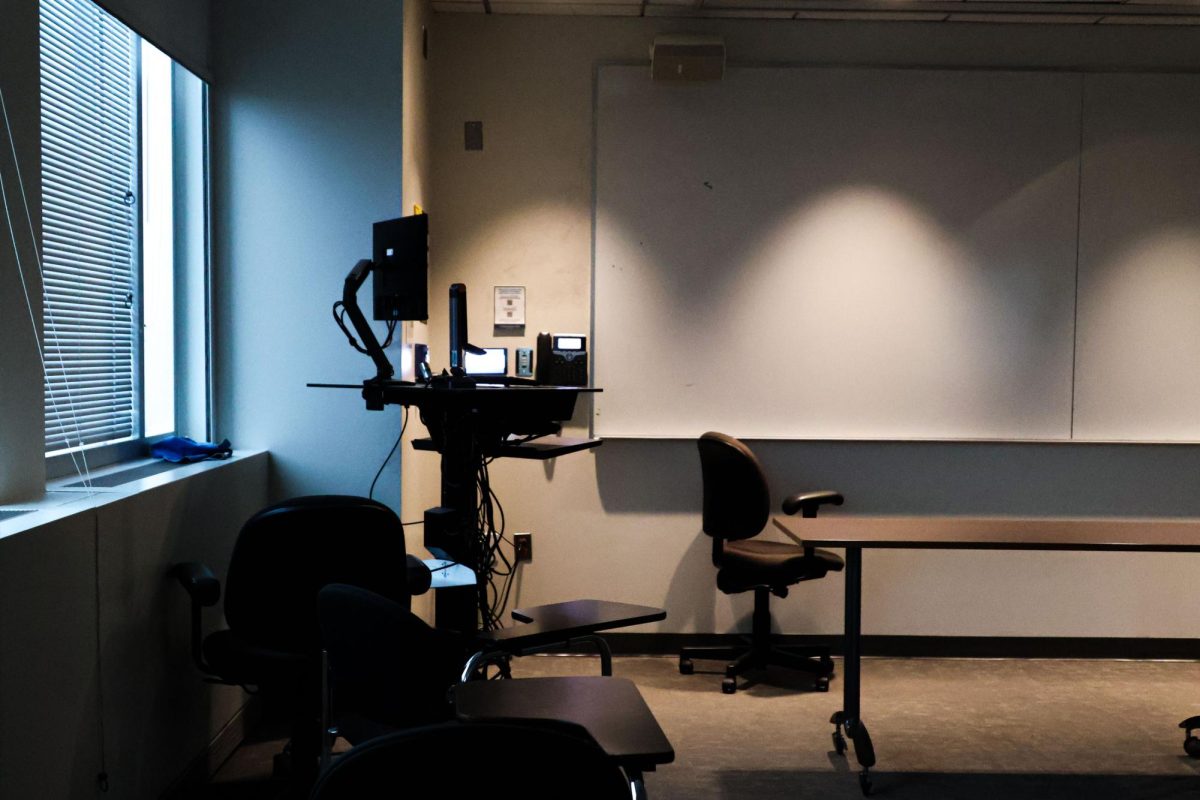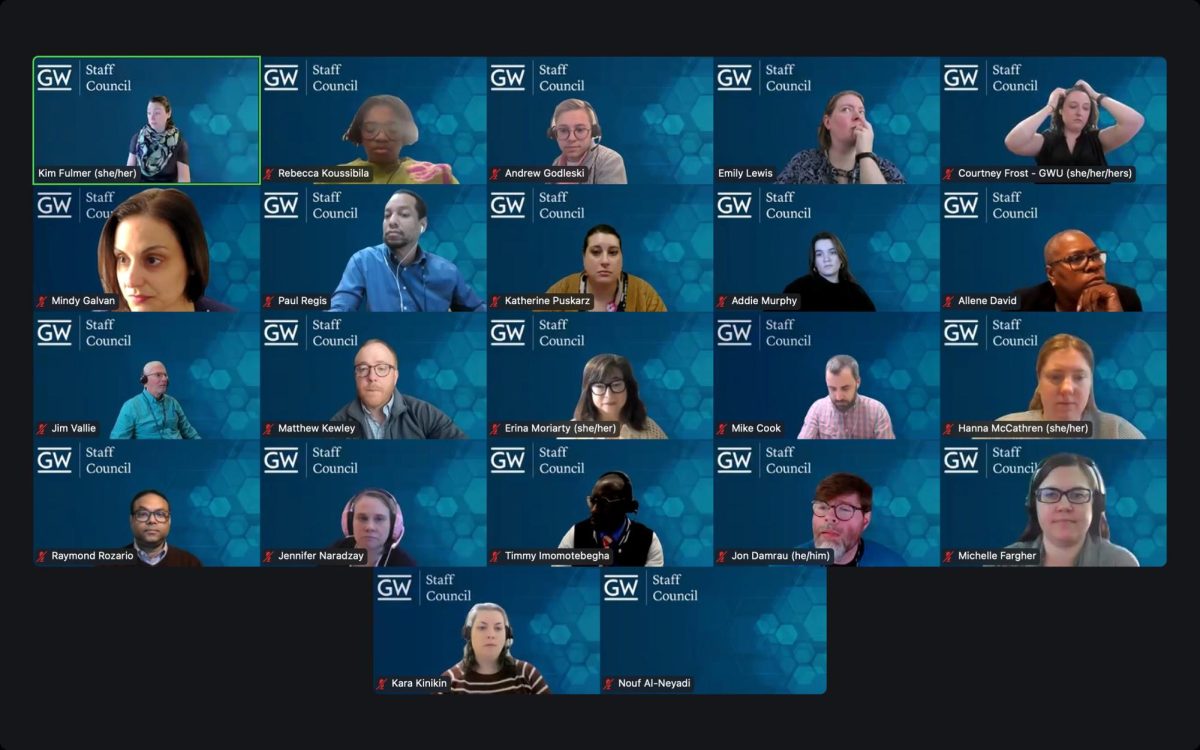A lecture series hosted by the Elliott School of International Affairs on domestic and global responses to the COVID-19 pandemic has helped bring the school’s members together, faculty and staff said.
Faculty and alumni involved in the “Experts Weigh In” web series, which is held on WebEx, have discussed over the past few weeks how certain regions of the world or academic fields like economics and international relations have been impacted by the ongoing outbreak. Elliott School faculty and staff said the series has helped raise awareness for worldwide concerns in international affairs like globalization during the pandemic.
Matt Donovan, the assistant director of annual giving and alumni relations in the Elliott School, said the series aimed to hold community programming for alumni, students and parents remotely.
“In light of the pandemic, all in-person alumni programs at the Elliott School were canceled, and the ‘Experts Weigh In’ series offered a chance to bring community members together for timely and important programming,” Donovan said in an email. “The fundamental goal of the series is to bring community members of the Elliott School and broader University together for conversations on issues affected by the coronavirus.”
Donovan said officials have received “overwhelmingly positive feedback” on the series and have heard that many audience members have expressed a desire to ask questions to the experts during the series.
He said speakers were selected based on their “expertise and availability” and include current Elliott faculty and alumni, like financial journalist and alumna Diana Henriques, who specialize in economics.
Donovan said the series has held five sessions so far, and officials are working on a sixth lecture hosted by Michael Schwirtz, a Pulitzer-prize winning journalist for The New York Times.
He said he anticipates ongoing developments with the pandemic will provide topics of discussion for future sessions.
As the pandemic progresses, the series will also present the opportunity to look back to “see how expectations played out,” Donovan said.
Hope Harrison, an associate professor of history and international affairs, said holding the series furthers the mission of the Elliott School to raise awareness about global issues, like the state of the economy and international responses to COVID-19, during the pandemic.
“We’re an educational institution and whether we’re on campus or not, we still have that mission, and we’re still taking that and doing whatever we can to educate people,” she said.
Harrison, who hosted a lecture on April 15 about Germany and the larger European response to COVID-19, discussed Chancellor Angela Merkel’s efforts to lead Germany through the crisis, how German public opinion has reacted to her decisions and financial programs she implemented to sustain the economy.
She said in her lecture that Germany has implemented a program in which the government funds workers’ salaries, allowing companies to recover from the economic crisis the pandemic has caused without losing the investment they put into their employees, which she said had been useful when implemented during the 2008 financial crisis.
Harrison said the skills Merkel developed when living in East Germany helped her to lead the country during the crisis.
“People in East Germany, first of all communist East Germany, were used to some difficult circumstances and restrictions of their freedom even if they didn’t like it,” she said.
Maggie Chen, a professor of economics and international affairs, said she gave an overview on the current state of the global economy and discussed how the COVID-19 economic crisis is affecting various industries, occupations and countries differently.
“Most of the crises we have seen in the last decades were financial in nature, but this time around is very different,” she said in her lecture. “It started as a health crisis and this health crisis quickly was converted into a shock in the labor market as the government introduced lockdowns.”
Chen said the crisis has been challenging for labor environments in which working remotely is more difficult and is predicted to cause gross domestic product to decrease across countries with advanced economies. She said some of the “protectionist” measures like tariffs employed by countries concerned about globalization could slow down the global economic recovery.
“The pandemic is reinforcing some governments’ concerns that globalization has gone too far and the fear of dependence on other countries is motivating some to turn more inward,” she said in an email.
Kimberly Morgan, a professor of political science and international affairs, said in her lecture on April 15 that the political tensions and economic rifts that have risen due to the pandemic could affect relations between countries.
She said U.S.-China relations may worsen because of President Donald Trump’s efforts to blame China for the spread of the coronavirus, whereas Europe may take a more “measured” approach in inquiring China’s role and responsibilities in the pandemic to secure internal cohesion.
“Of immediate interest will be what happens between European countries – whether, as the financial and economic repercussions of this crisis become more evident, if the EU will be able to hold together or if rifts will emerge,” Morgan said in an email. “We’re only at the start of the economic reckoning so it’s hard to say at this time.”








